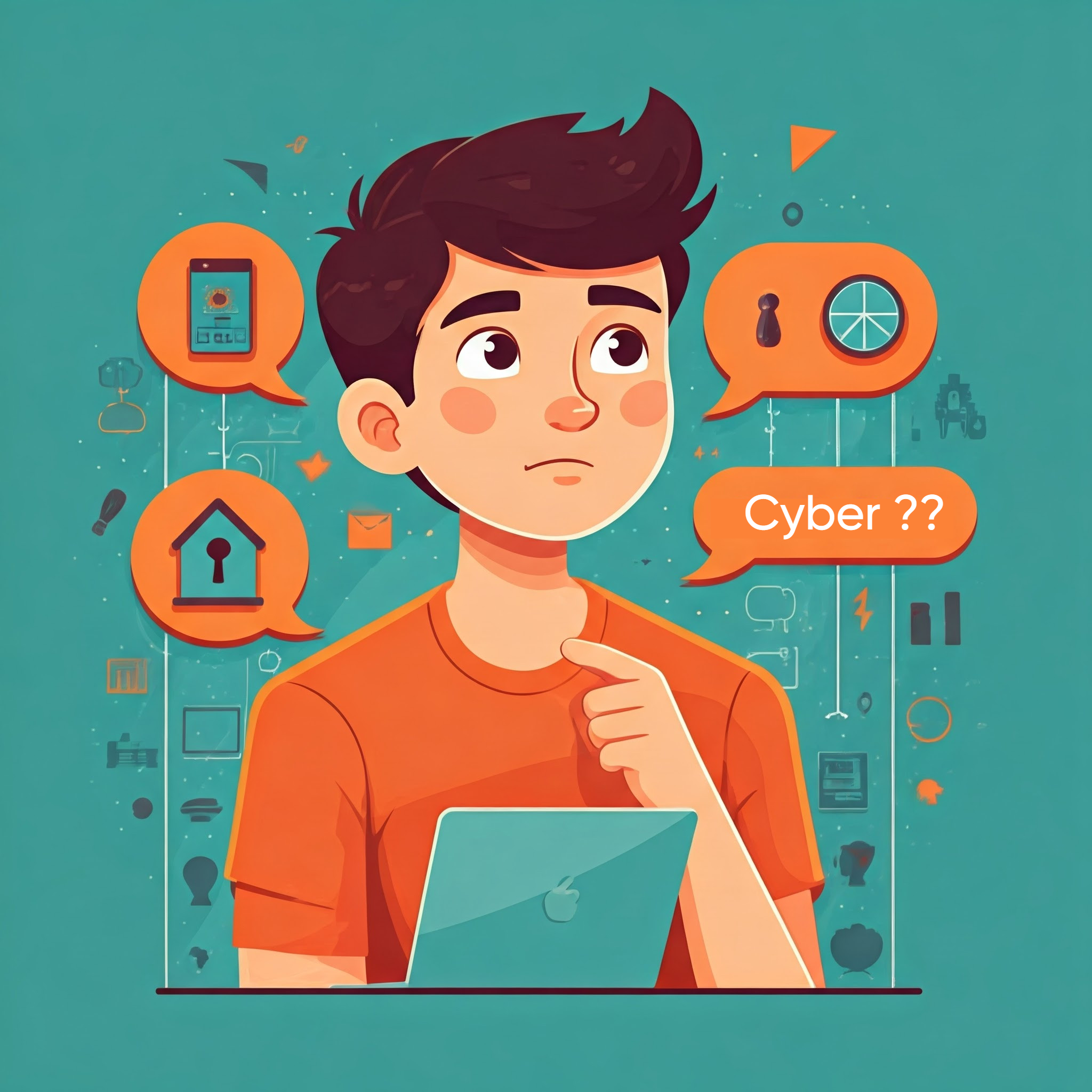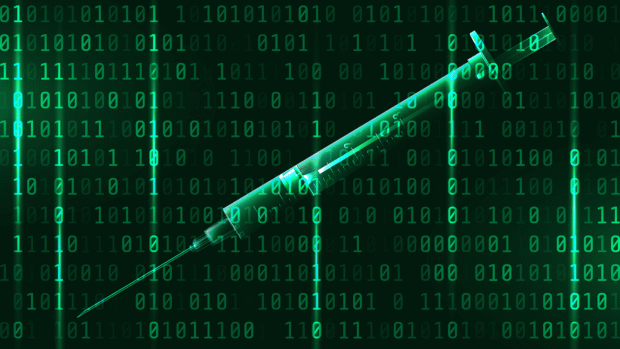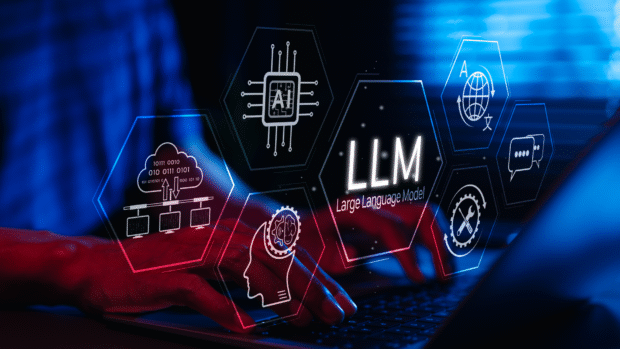
What is Cybersecurity?
Imagine you have a house where you keep your favorite toys, drawings, and secrets. You want to keep these things safe so that no one can steal or ruin them. Cybersecurity is like protecting your house—but instead of toys, we are protecting information on computers, phones, and the internet.
Important Concepts
- Locks on Doors (Passwords):
Just like you use a key to lock your house so strangers can’t get in, you use a password to lock your computer, phone, or accounts. The stronger the lock (password), the harder it is for someone to break in.
- Simple Rule: Use long, unique passwords—like a super-strong lock!
- Guard Dogs (Antivirus Software):
Imagine you have a guard dog in your house that barks when someone tries to sneak in. Antivirus software is like that guard dog—it watches for bad guys (viruses or malware) trying to get in and stops them.
- Simple Rule: Always keep your guard dog (antivirus) awake and updated.
- Tricky Strangers (Phishing):
Sometimes, a stranger might trick you by pretending to be someone nice, like a delivery person, asking you to open the door. On the internet, this is called phishing, where bad people send fake emails or messages to trick you into sharing secrets, like your password.
- Simple Rule: Never talk to or click on something suspicious, even if it looks friendly.
- Windows and Weak Spots (Updates):
If there’s a crack in the window of your house, a bad guy might sneak in. Computers also have weak spots that hackers use to break in. Fixing these cracks is called updating your computer and software.
- Simple Rule: Always update your devices—it’s like fixing broken windows.
- A Copy of Your Toys (Backups):
What if someone sneaks in and takes your toys or ruins them? If you have an extra copy of your toys somewhere safe, you can get them back. A backup is like having an extra copy of your important files.
- Simple Rule: Keep backups so you don’t lose your favorite things.
- Strangers Watching Through the Fence (Hackers):
Hackers are like sneaky strangers peeking over your fence, trying to see what you’re doing or steal something. Firewalls act like tall fences that make it hard for them to peek in.
- Simple Rule: Always keep your fence (firewall) up.
- Never Share the Secret Code (Personal Info):
If you share your secret code (like your password or personal details) with others, it’s like giving away the keys to your house.
- Simple Rule: Keep your passwords and information secret—only share with trusted people.
Why Is Cybersecurity Important?
Cybersecurity is important because it keeps your digital house safe. Without it, bad people might:
- Steal your secrets (personal data).
- Break your favorite toys (delete or damage files).
- Pretend to be you (hack accounts).
Simple Tips for Staying Safe Online
- Use strong locks (passwords).
- Watch out for tricky strangers (phishing emails).
- Keep your guard dog awake (antivirus).
- Fix cracks and broken windows (updates).
- Make copies of important things (backups).
The Big Idea:
Cybersecurity is like being a smart homeowner. It’s about protecting your house (your devices), your treasures (your information), and your family (your friends and the online world) from bad guys. By being careful, fixing problems, and keeping secrets, you stay safe!
A Fun Example to Understand Cybersecurity
Imagine you’re building a castle to protect your treasures.
- The moat is your firewall, keeping unwanted visitors out.
- The guards at the gate are like your passwords.
- The treasure room has an extra lock (2FA) to ensure only you can get in.
Why Cybersecurity Matters
Cybersecurity keeps your digital life safe. Without it:
- Your treasures (personal data) could be stolen.
- Your house (computer) could be damaged.
But with good habits and tools, you can stay safe and enjoy the internet.
Functional External Links:
#CybersecurityBasics #OnlineSafety #DigitalAwareness #CyberProtection













Be the first to leave a comment